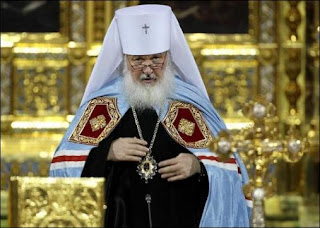Mother Maria of Paris: A Saint for our Day
Infinte pity and compassion possessed her; there was no suffering to which she was a stranger; there were no difficulties which could cause her to turn aside. She could not tolerate hypocrisy, cruelty or injustice. The Spirit of Truth which dwelt in her led her to criticize sharply all that is deficient, all that is dead in Christianity and, particularly, in what she mistakenly conceived to be classical monasticism. Mistakenly, for what she was attacking was an empty shell, a petrified form. At the same time, with the perception of a seer, she saw the hidden, glorious content of the monastic life in the fulfillment of the gospel, in the realization of divine love, a love which has room to be active and creative in and through people who have turned away from all things and – above all – from themselves in order to live God’s life and to be his presence among men, his compassion, his love. ‘God so loved the world, that he gave his only begotten Son, that whosoever believeth in him should not perish, but have everlasting life’: this she understood, this she lived for. This is also what she died for.
Mother Maria is a saint of our day and for our day: a woman of flesh and blood possessed by the love of God, who stood fearlessly face to face with the problems of this century.
ANTHONY
Metropolitan of Sourozh


